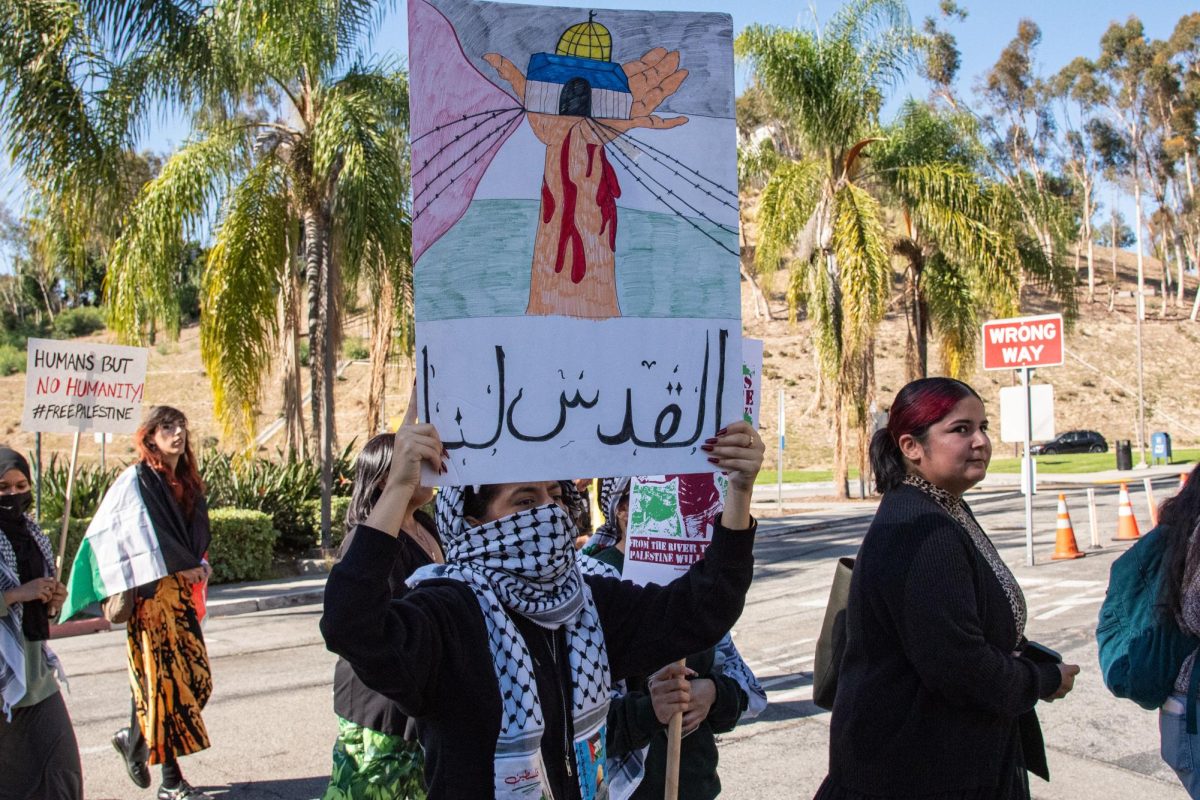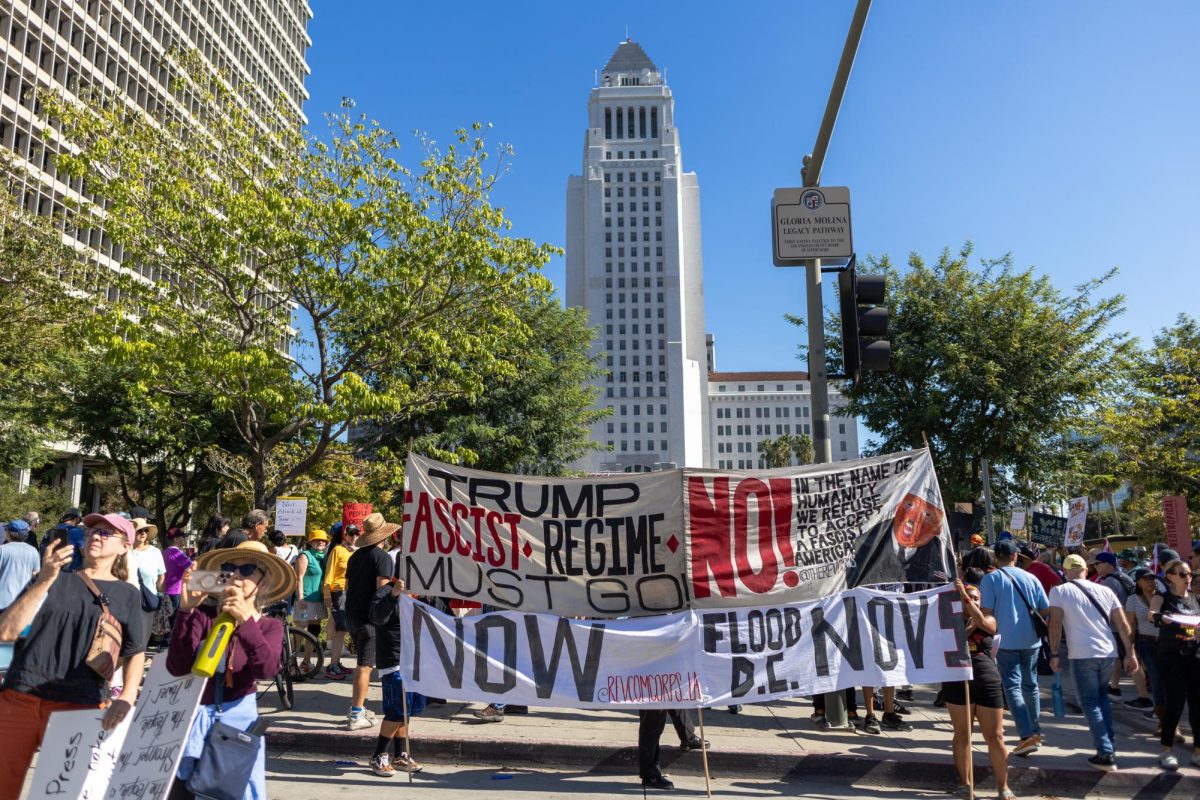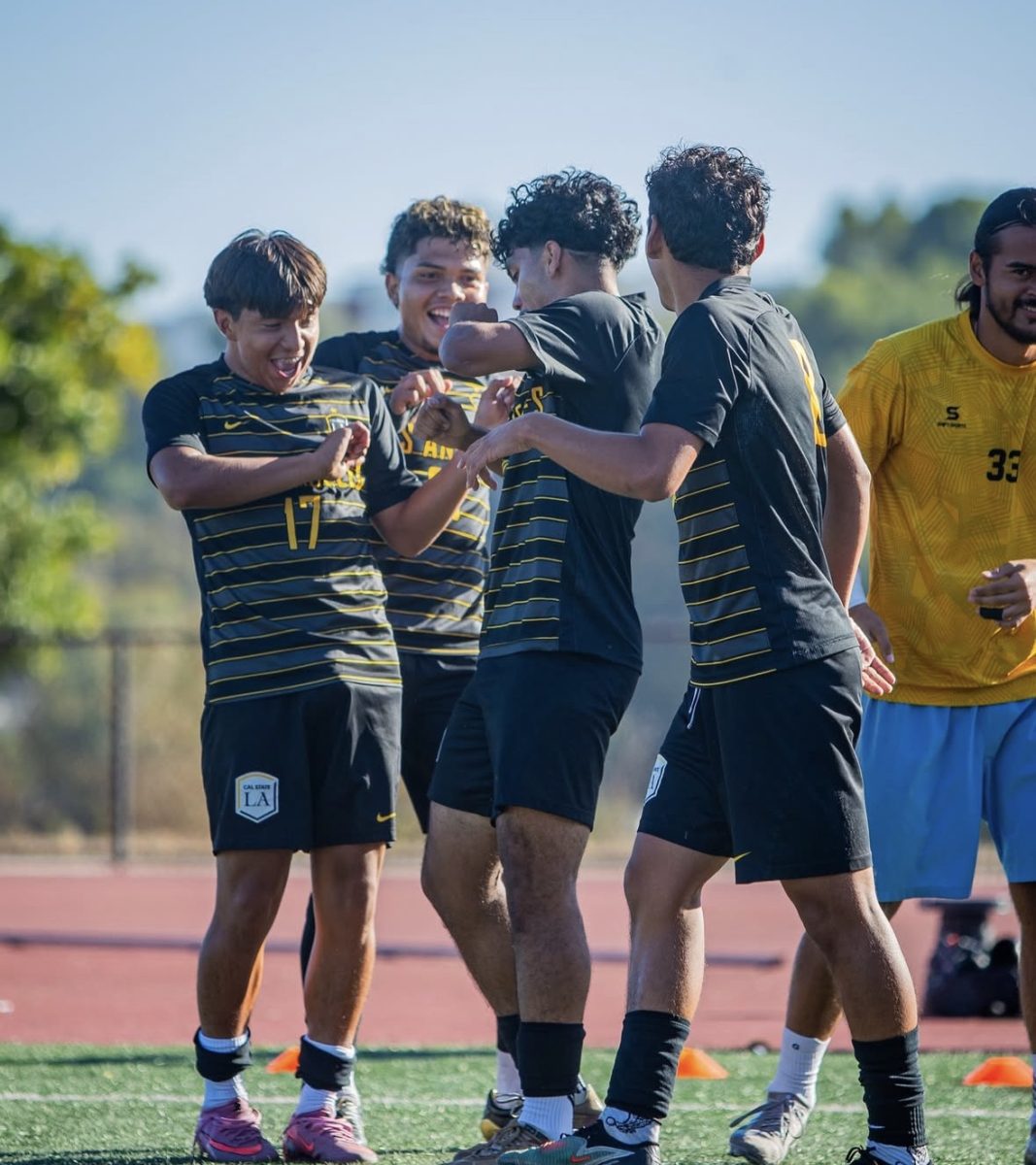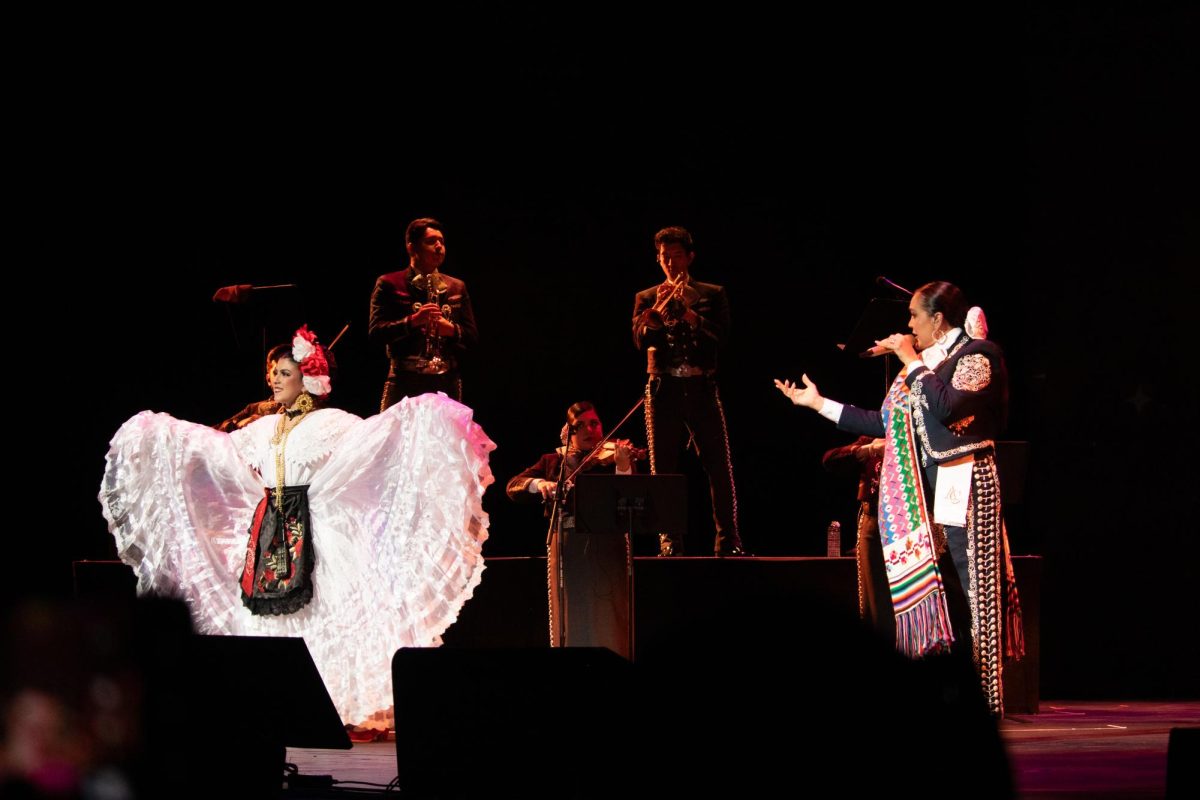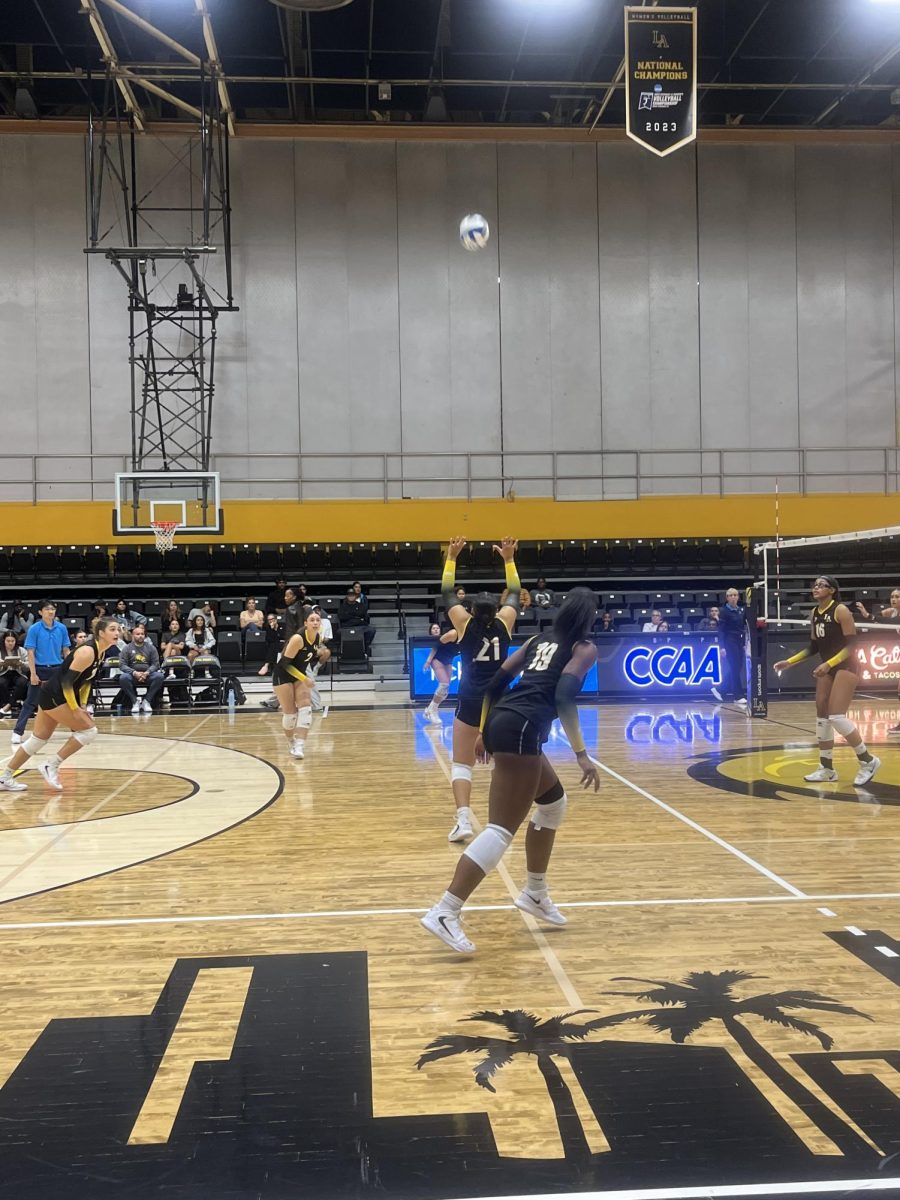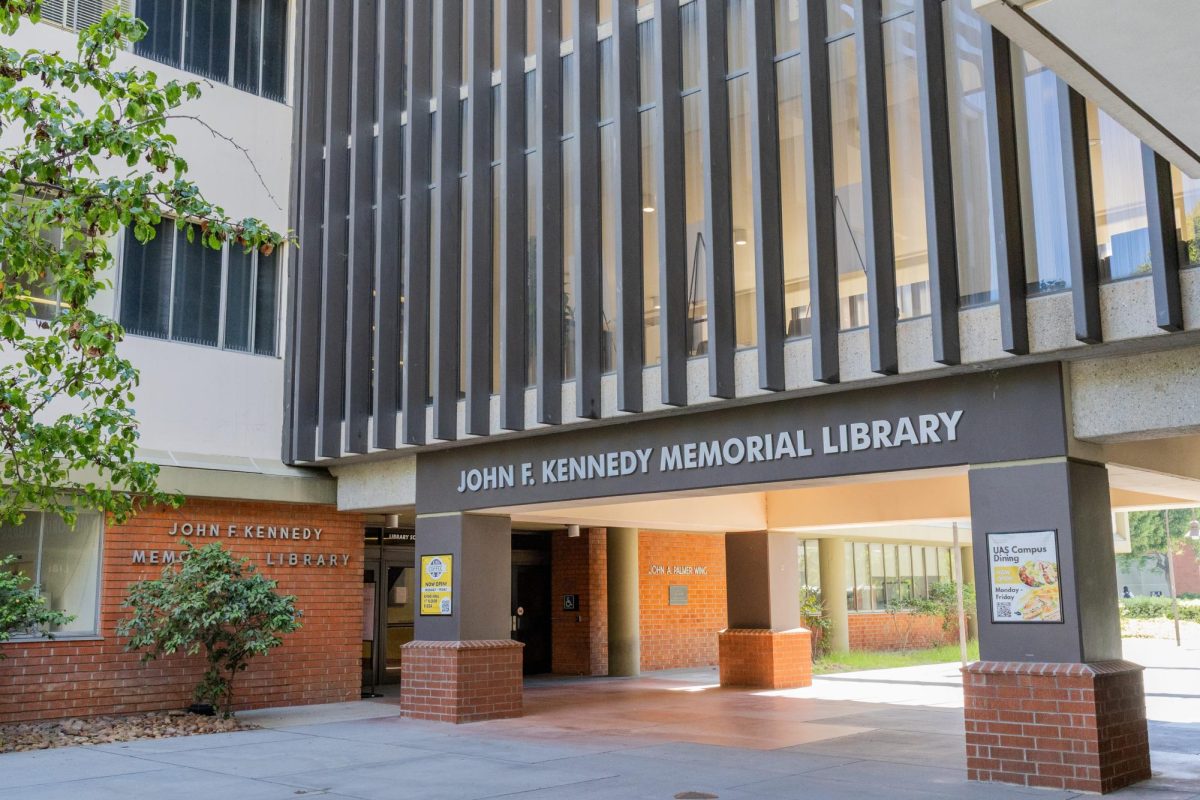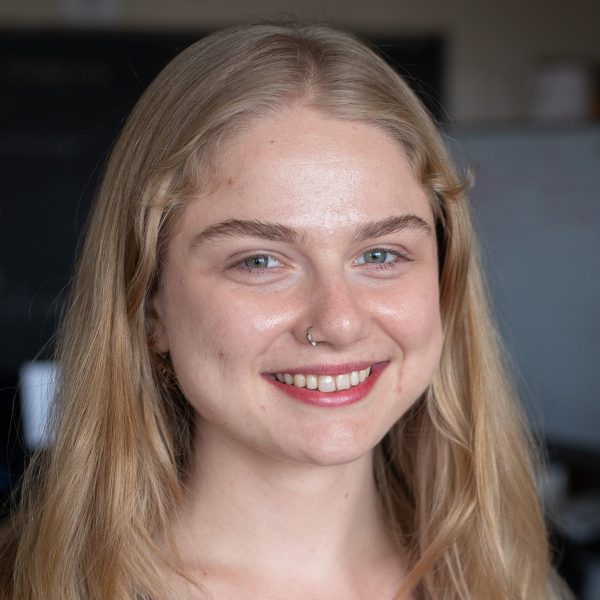The war between Israel and Hamas and the fight for land between Israel and Palestine has been a subject of discussion and dismay at multiple universities in Southern California.
In a university-wide message sent on Oct. 11, interim president of Cal State LA, Leroy M. Morishita expressed his sympathy for those affected by the war. He encouraged students and faculty to use the resources available to them, such as Counseling and Psychological Services (for students) and the employee assistance program, LifeMatters (for faculty).
“In the days ahead, we will continue to hear more about the events unfolding in the region. A wide gulf divides the warring sides, and in public discourse there is a range of perspectives on the history and politics of the region,” Morishita said. “Cal State LA is a community of scholars and learners and I encourage you to continue to stay informed by reading and joining discussions, and through community service events.”
In October, the Palestine, Arab and Muslim caucus of the California Faculty Association (CFA) released a statement, describing Israel’s actions as collective punishment and retaliation against the Palestinian people:
“For the last 75 years, Israeli military colonialism, occupation and apartheid has already caused widespread societal destruction for Palestinians, where over half the population currently lives in poverty. Palestinian life is stunted on all levels.”
On Nov. 6, a second university-wide message was sent, condemning graffiti found on campus in late-October:
“Upholding the values of respect and collegiality is equally central to the health of our community. We can exercise these values, even when we fundamentally disagree with each other. We know there are differing views on the war in the Middle East. But the language of bullying, hate speech, and othering—on a wall or in conversation—tears at the rich fabric that is our community.”
On Nov. 15, a UT reporter found anonymous graffiti in the music building’s elevator that read:
“Palestine is lying to you! It’s Nazi propaganda! To listen to real GenZ people! No justice! No peace! Protect Israel!”
On Nov. 8 and 9, several Cal State LA students and faculty members marched in support of Palestine on the university’s campus, calling for a ceasefire.
Before marching, protestors gave speeches outside of the university bookstore in the student walkway.
At both marches, protestors held up signs reading, “Free Palestine” and “From the river to sea,” a controversial slogan which calls for Palestinian liberation or the eradication of Israel, depending on who you ask, according to AP news.
During an interview at the Nov. 8 protest, Students for Justice in Palestine member and one of the organizers of the protest, Ashley Gregory said it would be inaccurate to call the issue a conflict or war between Israel and Hamas.
“They’re not just waging war against Hamas. You can see that in the fact that Hamas, though it’s a Gaza-based organization, there [are] settlers taking over in the West Bank under the pretense of this war,” Gregory said. “Are we going to start saying that Hitler waged a war against Jews, or a genocide or that he waged a Holocaust and a genocide?”
The first protest was briefly interrupted by a person who was holding a Bible, while chanting “Jesus saves.” Protestors yelled and booed, eventually shooing them away.
After the second protest, organizers declined to comment or identify themselves to the UT in fear of retaliation.
Protest participants chanted “One, two, three, four, open up the prison door. Five, six, seven, eight, Israel is a terrorist state,” and “There is only one solution: the Intifida revolution. Free, Free, Free Palestine.”
Since early November there have been no further protests against Israel on campus.
Last week, Israel and Hamas announced that they would hold a four-day ceasefire, with Hamas agreeing to release 50 hostages and Israel to release 150 war prisoners, according to an Associated Press story.
Here is what some students and faculty told the UT when asked their opinion and knowledge on the conflict:
Theater major and international student Emily Atias is Jewish and was born and raised in Israel. On Oct. 7, Atias was at a Shabbat dinner when she initially heard about Hamas’ attacks and called her parents to find out that everyone was running to shelters. Usually, when they are told to go to a shelter, it is a mistake, but this time it wasn’t, according to her.
Even before the war, Atias said her mom frequently called her about reported terror attacks in Israel, and they weren’t always said to be by Hamas.
“I feel like now I have a double life. The life I have back home where I’m on phone calls all day long [as a routine], just to make sure that everyone is still alive…and the life when I’m a student, as well,” Atias said.
She said there are many nights where she cries herself to sleep because she doesn’t know if her family, boyfriend or friends are still alive. Her boyfriend is a soldier in the Israel Defense Forces (IDF); joining the IDF is mandatory for Israeli citizens when they reach the age of eighteen.
Middle East historian and professor, Afshin Matin-Asgari, who was born in Iran, said the conflict has at least 100 years of history and did not start on Oct. 7. He said he does not want to belittle what Hamas did because it was a “criminal act targeting civilians,” but as a Middle East historian he does not believe the conflict is a war.
“What Israel has done in one month amounts to a genocide against a defenseless civilian population that is suffering collective punishment for what Hamas has done,” Matin-Asgari said. “This is a genocide against Palestinians committed by the state of Israel and backed by the U.S. government unconditionally.”
Education professor, Rebecca Joseph said she has always been identified as a professor at Cal State LA, but now she is being identified as a “Jewish professor.”
“I think they should realize that in our world, people don’t know how to talk to each other and [consider] different perspectives, and we need to learn and practice it,” Joseph said. “I do believe that there should be a series of courses on the Middle East taught by rotating professors in multiple perspectives.”
Professor Lia Kamhi-Stein said she feels othered by her colleagues and that they see her as “belonging to a genocidal state as a colonialist” because she is Jewish.
“At this point, there is an effort to judge. There isn’t an effort to talk, there is an effort to blame,” Kamhi-Stein said.
History major Steph Wood said they have a lot of personal connections to the Jewish community and because of that the sources they look into “are largely from anti-Zionist Jewish organizations.”
“I think that there’s an equal conflation of Hamas with the entirety of the Palestinian people,” Wood said. “I think that’s just as unfair as the conflation of the Zionists with Jews, because even though certain aspects of the solidarity in the fight for Palestinian freedom involved Hamas, it doesn’t mean what everybody thinks it means.”
Hamas is a Palestinian militant group that has governed the Gaza Strip since they were elected in 2006, according to the Council on Foreign Relations.
Zionism is a movement that supports the statehood for Jewish people in Israel, providing them with a safe haven from anti-semitism, according to the Anti-Defamation League (ADL).
Graduate student Marjorie Hunt said she doesn’t think most people have a true understanding of the conflict, but does not consider herself an expert on the issue either.
“I think that both sides see this conflict as an existential threat, and I think that’s why…emotions run so high about it,” Hunt said.
During a CSU committee on finance meeting held in November of 2023, board of trustees member Julia Lopez said she wanted to go “beyond” the annual report and statistics to discuss how campuses address these issues.
“This is not just an annual report. This is really coming at a time that we are really all feeling very much the events in the Middle East. We live in a time right now where there is a lot of hate and prejudice and intolerance,” Lopez said.
Video coverage of the on-campus protests can be found on the UT website.
Editor’s Note: The University Times (UT) follows the guidelines and suggestions of the Associated Press Stylebook (AP), which refers to the conflict as the “Israel-Hamas war,” due to the ongoing military operations in Israel and Gaza.

